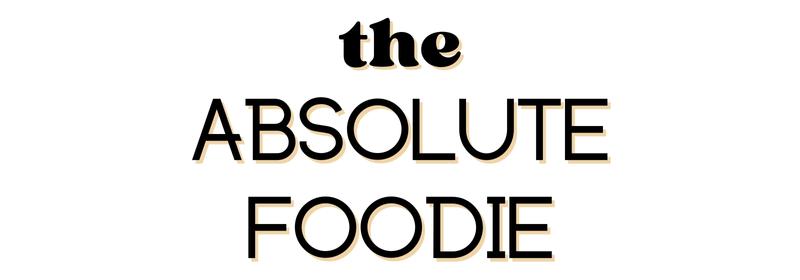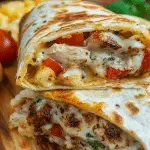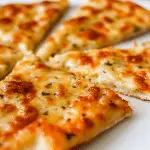If you’re considering trying the carnivore diet, here’s a comprehensive carnivore diet food list to help you get started.

The carnivore diet, also known as the zero-carb diet or the all-meat diet, is a type of diet that primarily consists of animal products. This means that you eat only meat, fish, eggs, and dairy products while avoiding all plant-based foods such as fruits, vegetables, grains, and legumes.
Jump to:
While the carnivore diet may seem restrictive, it can be a beneficial option for those looking to improve their overall health, lose weight, or address specific health issues. If you’re interested in starting a carnivore diet, it’s important to know which foods are allowed and which ones are not.
Foods Allowed On The Carnivore Diet
Beef
All cuts of beef are allowed, including steak, beef liver, ground beef, and roast.
Pork
Bacon, pork chops, pork roast, pork rinds, and pork loin are all allowed on the carnivore diet.
Poultry
Chicken, turkey, duck, and other types of poultry are allowed.
Fish
Salmon, tuna, sardines, mackerel, shrimp, scallops, lobster, oysters, trout, and other types of fish are allowed.
Eggs
All types of eggs, including chicken, duck, and quail eggs, are allowed on the carnivore diet.
Dairy products
Full-fat dairy products such as butter, cheese, yogurt, and heavy cream are allowed, although some people may choose to avoid dairy altogether.
Organ meats
Liver, heart, and other organ meats are allowed on the carnivore diet.
Bone broth
Homemade bone broth made from animal bones is allowed.
Salt and pepper
These can be used to season your food.
Looking for recipes? Check out our collection of carnivore diet recipes.
Food Not Allowed On The Carnivore Diet
Fruits
All types of fruits, including berries, apples, oranges, and bananas, are not allowed.
Vegetables
All types of vegetables, including leafy greens, herbs, root vegetables like potatoes, and cruciferous vegetables like broccoli, are not allowed.
Grains
All types of grains, including wheat, rice, quinoa, and corn, are not allowed.
Legumes
All types of legumes, including beans, lentils, and peas, are not allowed.
Sugar and sweeteners
All types of sugar and sweeteners, including honey, maple syrup, and artificial sweeteners, are not allowed on the carnivore diet.
Processed foods
All types of processed foods, including chips, soda, juice, cookies, and candy, are not allowed.
Alcohol
All types of alcohol, including beer, wine, and spirits, are not allowed on the carnivore diet.
Top Tips
- Drink plenty of water: While the carnivore diet is low in carbohydrates, it’s important to stay hydrated. Make sure to drink plenty of water throughout the day.
- Choose high-quality animal products: When following a carnivore diet, it’s important to choose high-quality animal products. Look for grass-fed meats, wild-caught fish, and organic dairy products.
- Experiment with different cuts of meat: There are many different cuts of meat to choose from when following the carnivore diet. Try different cuts of beef, pork, and poultry to keep things interesting.
- Don’t be afraid of fat: The carnivore diet is a high-fat diet, and it’s important to get enough fat to stay satisfied and energized. Choose fatty cuts of meat and add butter, cheese, or heavy cream to your meals as desired.
- Consider supplements: While the carnivore diet can be nutritionally complete, some people may benefit from supplements such as vitamin D, omega-3 fatty acids, and magnesium.
Carnivore Diet Meal Plan
Here’s a one-day meal plan for the carnivore diet to get you started:
Breakfast:
- 2-3 fried eggs cooked in butter or lard
- 2-3 slices of bacon or sausage
- Coffee or tea (black or with heavy cream)
Lunch:
- 8-10 oz. grilled ribeye steak
- 1-2 cups of bone broth
- Water or sparkling water
Snack:
- 1-2 oz. of cheese
- 1-2 hard-boiled eggs
Dinner:
- 8-10 oz. of baked or grilled salmon
- 1-2 cups of beef bone broth
- 1-2 tablespoons of butter or ghee
Snack/Dessert:
- 1-2 oz. of 85% or higher dark chocolate (not everyone will consider this as allowed on the carnivore diet; that is up to you!)
Frequently Asked Questions
The carnivore diet eliminates all plant-based foods, including vegetables, as it focuses solely on animal products. The diet’s philosophy is that animal-based foods provide all the necessary nutrients for the body and that consuming plants is unnecessary. However, some proponents of the carnivore diet may include small amounts of herbs and spices to add flavor to their meals, but vegetables are generally not included.
Cheese is a high-fat dairy product that is allowed on the carnivore diet, but not all types of cheese are created equal.
Here are some types of cheese that you can eat on a carnivore diet:
Hard Cheese: Hard cheeses such as cheddar, Parmesan, and Swiss are great options for the carnivore diet. These cheeses are low in lactose and high in fat, making them a great source of energy and flavor.
Soft Cheese: Soft cheeses such as Brie, Camembert, and goat cheese can also be consumed on the carnivore diet. These cheeses are higher in lactose, so be mindful if you have any lactose intolerance or sensitivities.
Blue Cheese: Blue cheese such as Roquefort, Gorgonzola, and Stilton are also allowed on the carnivore diet. These cheeses are high in fat and flavor, but some people may find them too strong or pungent.
When choosing cheese on the carnivore diet, it’s important to look for high-quality, full-fat options that are free from added sugars, flavors, and preservatives. Additionally, be mindful of any lactose intolerance or sensitivities, as some types of cheese may cause digestive issues in some individuals
The frequency of meals on a carnivore diet can vary based on personal preference and lifestyle. Some people on the carnivore diet choose to eat three meals a day, while others opt for two larger meals or one large meal per day.
Since the carnivore diet is highly satiating due to its high protein and fat content, many people find that they naturally eat less frequently on this diet. Additionally, since there are no carbohydrates to provide quick energy, some people may find that they have more sustained energy levels throughout the day when they eat larger, more infrequent meals.
Wrapping It Up
In summary, the carnivore diet is a highly restrictive diet that primarily consists of animal products. While it can be effective for weight loss and other health benefits, it’s important to consult with a healthcare professional before starting any new diet. By choosing high-quality animal products and staying hydrated, you can successfully follow the carnivore diet and improve your overall health.


















Mary Duckett
Hi, Is coffee Whitener allowed on the carnivore diet (in moderation)
Kris
Coffee whiteners are generally not allowed on the carnivore diet, but a splash of heavy cream is okay. If you are not following the diet strictly, you can of course make this allowance for yourself. 🙂